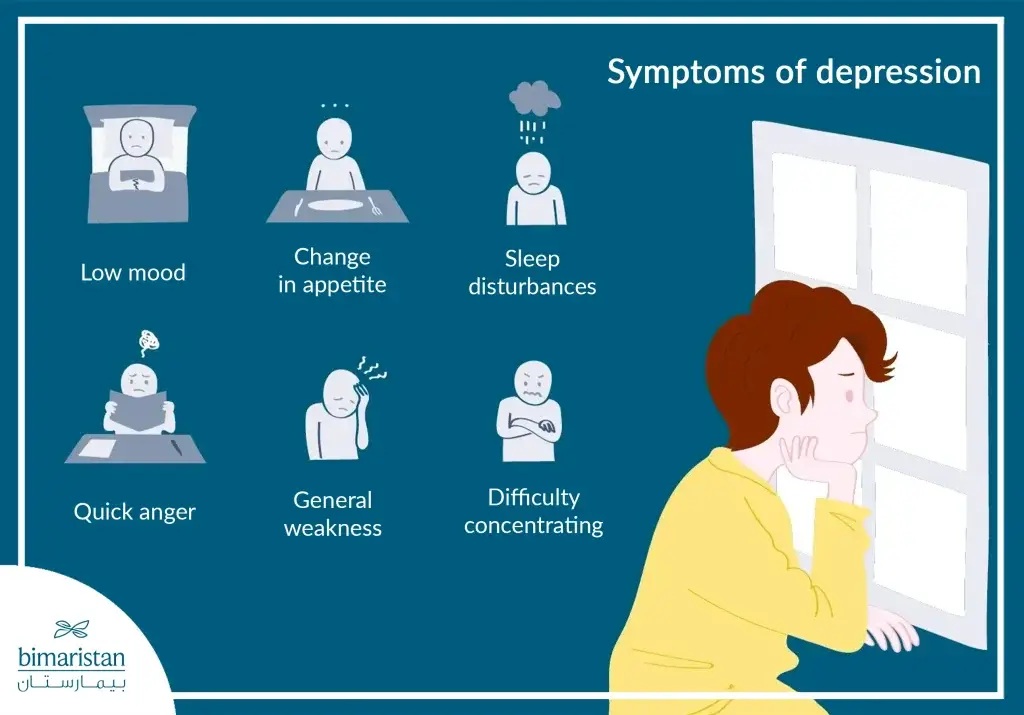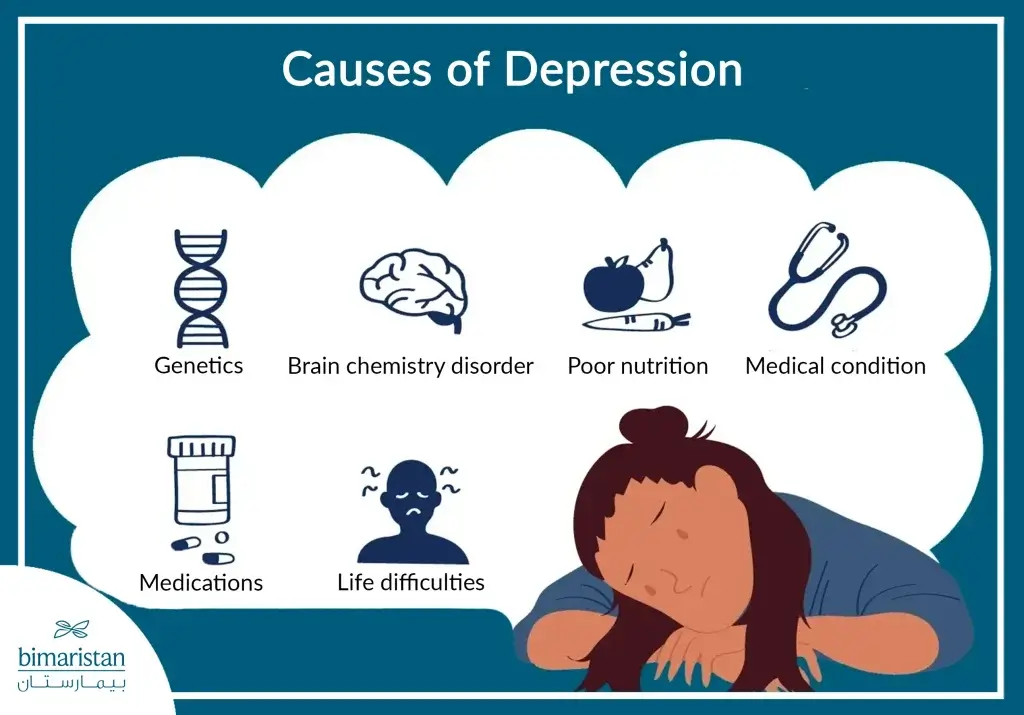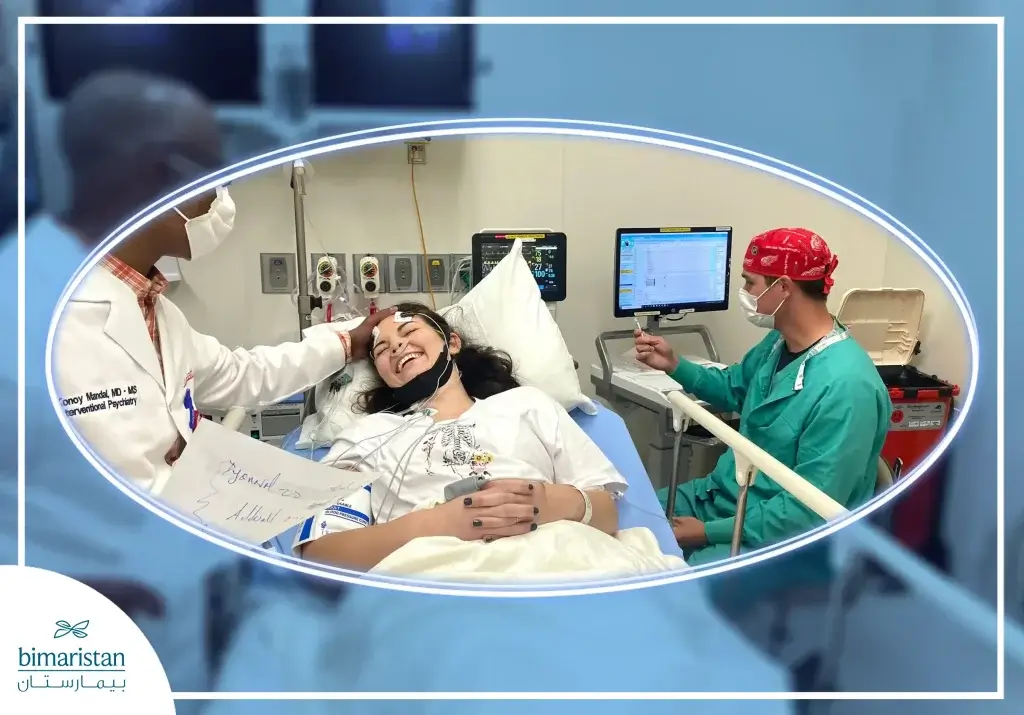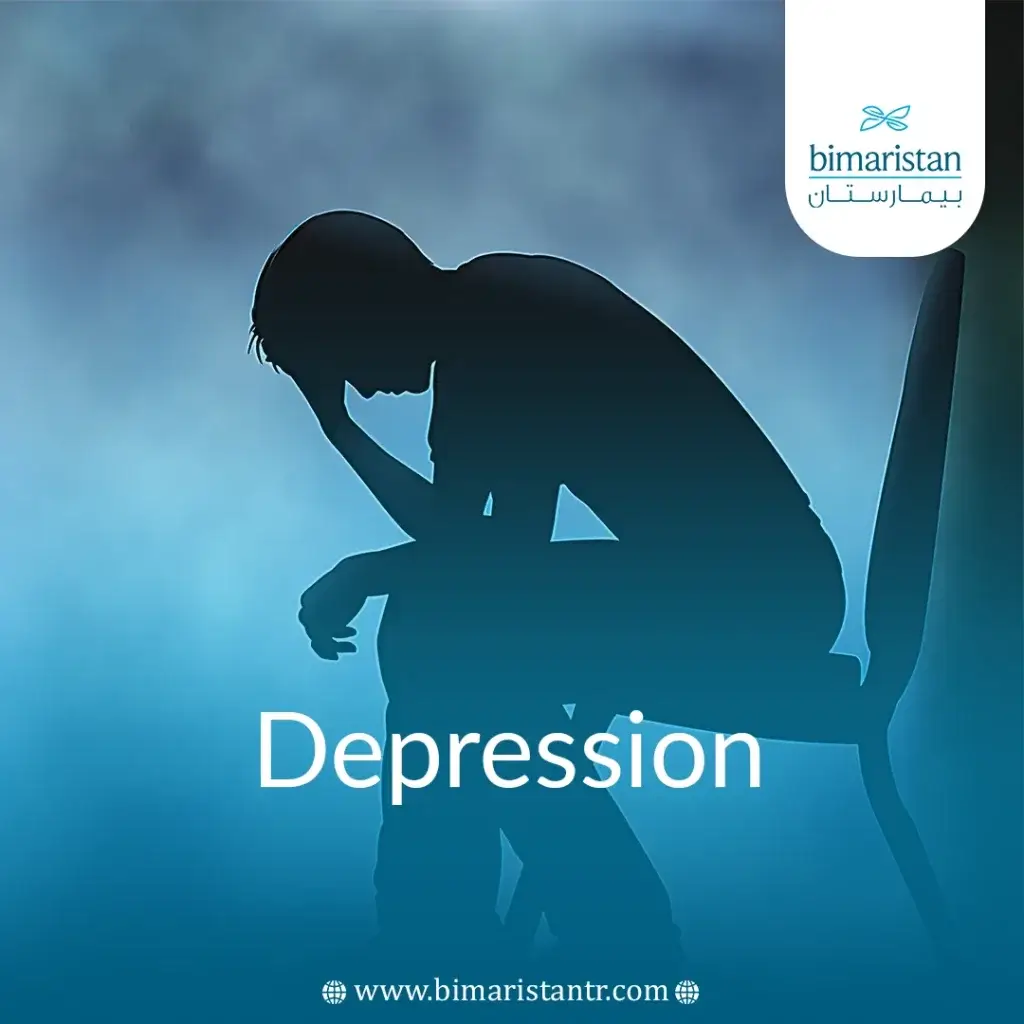Depression affects approximately 24% of adolescents, with studies showing that the average onset occurs around age 15. However, these numbers can vary between countries, influenced by cultural factors and the level of awareness about the condition. In this article, we’ll take a closer look at this disease, its effects on young people, and the significance of recognizing and tackling this widespread issue.
What is depression?
It is a psychological disorder characterized by persistent sadness and loss of interest or loss in daily activities. It is a common health condition that affects the quality of life of those affected by it. Most people believe that this disease is just a temporary state of misery that goes away within a day or two. However, the reality is different, as the symptoms of anxiety and depression affect the entire body psychologically and health-wise and may last for a long time, up to months or more, if left untreated.
There are several types of this disease that an individual can suffer from, and therefore treatment may differ from one patient to another depending on the type he has.
Types of depression
There are many types of psychological depression, including:
- Major depression: This is the most common form and is characterized by persistent sadness and loss of interest and pleasure in daily activities. It lasts for two weeks and prevents the individual from performing his daily activities.
- Persistent depression: Less severe than the previous type but lasts longer, up to two years.
- Bipolar depression: It is characterized by extreme mood swings ranging from deep sadness to mania.
- Seasonal depression: It occurs during a certain season of the year, usually in the fall and winter, and is associated with changes in light and weather, and is attributed to short days and lack of exposure to light.
- Perinatal depression: Some women start it during pregnancy (before childbirth) or postpartum depression and are characterized by sadness, anxiety, and fatigue.
- Depression with psychotic symptoms: This is accompanied by delusions and auditory or visual hallucinations and is sometimes called psychotic depression.
- Depression with anxiety: Anxiety occurs in 70% of patients.
Symptoms of depression
No two people with this disease have the same symptoms, as there is a wide spectrum of symptoms. Patients may experience any of the following symptoms:
- Sadness, feeling depressed and extremely upset
- Loss of interest and pleasure in activities that were previously enjoyable
- Sleep disturbances, such as insomnia or excessive sleeping
- Changes in appetite and weight, whether gaining or losing weight
- Fatigue, lack of energy, and feeling constantly exhausted
- Difficulty concentrating and making decisions
- Declining cognitive abilities and learning difficulties in children
- Feelings of guilt, anxiety, and constant stress
- Digestive disorders, such as colic or constipation
- Lack of optimism and self-confidence
- Generalized body pain or aches of unknown origin (especially in women)
- Loss of libido or sexual drive (in men)
- Thinking about death or suicide
You should consult a psychiatrist if you have been suffering from these symptoms or some of them for a long time because they undoubtedly negatively affect your daily life. With appropriate treatment, noticeable improvement is significant and within a short period.

Causes of Depression
Many causes lead to this disease in people, some of which may not be clear to the patient, so a specialist psychiatrist should be visited when the patient suffers from the disease for a long period without improvement. The most important causes of anxiety and depression are the following:
- Imbalance of chemicals in the brain: There may be an imbalance in the chemical balance in the parts of the brain that control mood, thoughts, sleep, appetite, and behavior in people with depression.
- Change in hormone levels in the body: This is one of the most important causes of depression in women. Especially during or before the menstrual cycle, before or after childbirth, and during menopause (menopause).
- Genetics: The incidence increases if a family member has a previous or current infection with this mental illness.
- Childhood incidents: A trauma that occurred during childhood changes the way a person reacts to stressful events, and depression may occur.
- Brain structure: There is a greater risk of depression if the frontal lobe of your brain is less active.
- Medical conditions: Having some diseases or health conditions may increase your incidence of this disease. The most important of these diseases are chronic diseases, insomnia and chronic pain, Parkinson’s disease, stroke, heart attacks, and cancer.
- Pain: People who feel physical, emotional, or chronic pain for long periods are more likely to suffer from depression.
- Drug or alcohol addiction

Risk factors for depression
The incidence increases in the following people:
- Women: The incidence rate in women is twice that of men. Especially during pregnancy or after childbirth, and is called pregnancy depression.
- Socio-economic status: Financial problems and poor social status increase the risk of depression.
- Medications: Some medications increase a person’s chance of developing the disease. The most important of these are birth control pills, corticosteroids (cortisone), and beta blockers (blood pressure-lowering medications).
- Vitamin D deficiency: Recent studies have shown that vitamin D deficiency may be a cause of depression or is related to the appearance of some symptoms.
Diagnosis of depression
Diagnosis is usually made by mental health specialists such as psychiatrists. Here are some steps that a psychiatrist can follow to diagnose this disease:
- Doctor interview: The doctor interviews the patient to understand his symptoms and medical and psychological history. The doctor may ask about the physical, emotional, and behavioral symptoms that the patient suffers from and the extent to which these symptoms affect his daily life.
- Depression assessment tests: The patient may be asked to complete questionnaires or assessment tests such as the Becker Depression Test or the Hamilton Depression Test. These tests assess the severity of symptoms and determine whether or not the patient is suffering from this disease.
- Excluding other causes of depression: The doctor may need to rule out any other possible causes of symptoms similar to depression, such as physical illnesses or other mental illnesses.
- Diagnosing secondary depression: The patient may have a certain health condition that is the cause of this disorder and can be treated. Therefore, the patient may be asked to undergo medical tests or blood tests.
- Making a final diagnosis: Based on the information collected from the interview and tests, the doctor diagnoses the disease and determines its severity (mild, moderate, severe).
The patient should talk openly with the doctor and explain in detail all the symptoms he is experiencing. It is also advisable to seek medical help if he suspects or suspects that someone is suffering from this disease.
Depression treatment
There are many ways to treat this psychological disorder. The specialist doctor determines the treatment of each patient individually according to his condition and severity and may resort to more than one method at the same time to achieve complete recovery. Using more than one method is the best treatment for depression.
Medication treatment for depression
There are many medications used in treatment, and the medications used depend on the severity of the disease and its symptoms. The following are some common medications used to treat depression:
- Selective serotonin reuptake inhibitors (SSRI): These are the most common types of medications used to treat depression with fewer side effects, as they are the best medication for depression without noticeable side effects. The most important examples of them are fluoxetine (Prozac) and citalopram (Celexa).
- Serotonin and norepinephrine reuptake inhibitors (SNRI): such as venlafaxine (Effexor) and duloxetine (Cymbalta).
- Tricyclic antidepressants (TCA): such as amitriptyline (Elavil) and nortriptyline (Pamelor).
- Monoamine oxidase inhibitors (MAOIs): such as phenelzine (Nardil) and tranylcypromine (Parnate).
These are traditional medications used for treatment and anxiety. There are also newer medications used to treat them, the most important of which are:
- Bupropion (Wellbutrin)
- Esketamine (Spravato)
- Maprotiline (Ludiomil)
It is very important to consult a specialist doctor before taking any antidepressants because of their side effects and their interaction with several other medications that the patient may be taking. The most important case in which a doctor should be consulted before taking these medications is pregnancy. Doctors can provide the necessary advice and guidance based on the patient’s condition and medical history and thus prescribe the appropriate medications for his condition.
Psychotherapy for depression
Also called talk therapy, this is done in the psychiatric clinic where the psychiatrist conducts a dialogue with the patient with the aim of teaching him how to deal with the events that occur in his life and affect his mood. Psychotherapy for depression includes several methods and techniques, including:
- Cognitive behavioral therapy (CBT) focuses on changing negative behavioral and thinking patterns that lead to disease and teaching the patient skills to deal with negative thoughts and feelings.
- Talk therapy: Focuses on exploring previous events and experiences that may have led to the disease, analyzing them, and changing the negative view of them.
- Cognitive therapy: Focuses on changing negative thoughts and false beliefs that affect mood and mood.
- Group therapy: Includes participating in group sessions with other patients suffering from the same problem, where experiences and mutual support are exchanged.
It is very important to consult a specialist doctor to assess the patient’s condition and determine the most appropriate treatment method for him.
Phototherapy for depression
Phototherapy is used to treat seasonal depression that occurs at the beginning of autumn or winter each year due to the shortening of the day and the increase in the length of the night and darkness.
ECT depression treatment in Turkey
Electroconvulsive therapy is one of the most important methods of treating severe psychological disorders in the event that the patient does not respond to drug and psychological treatment. It is the best treatment for severe depression.
Its importance is especially evident in pregnant women and the elderly due to the inability to take antidepressants in their case. In addition, it is important to treat cases that are resistant to medication.
Electroconvulsive therapy in Turkey is a very safe and effective method. The psychiatrist decides who can undergo this treatment method.
The patient is anesthetized for 5 to 10 minutes during this procedure, meaning that he does not feel anything during the treatment. Electrical electrodes are fixed on the patient’s head, and small electrical currents are passed through them for a few seconds. You will not convulse or feel anything and will wake up after 10 minutes.
The patient undergoes 8 sessions of electroconvulsive therapy over 2-3 weeks. It is necessary to resort to this method as an emergency treatment if the patient reaches the stage of suicidal thoughts. Contact us to learn more information about electroconvulsive therapy in Turkey (ECT).

Preventing Depression
In addition to treatment, some steps can be taken to prevent this disorder, including:
- Maintaining a healthy lifestyle: Eat a balanced and healthy diet, exercise regularly, and get enough sleep.
- Coping with stress: Learn stress management techniques such as meditation, deep relaxation, and breathing exercises.
- Positive thinking: Try to change negative thoughts into positive ones and encourage self-confidence.
- Maintaining social relationships: Maintaining strong social connections and enjoying relaxing times with friends and family.
- Avoiding stimulants: Avoid the consumption of stimulants such as caffeine and alcohol, as they may increase feelings of anxiety and stress.
- Seeking help: The patient should seek help when feeling symptoms and not hesitate to seek appropriate treatment.
It is important for patients to remember that depression is a treatable illness and that their condition can be improved with appropriate treatment and support. Patients should seek medical help and not feel ashamed or ashamed.
Sources:
